Seminars on Juche Idea Held in Japan
To Commemorate 113th Birth Anniversary of President Kim Il Sung
A seminar on the Juche idea was held in Gunma on April 13, 2025, and another one in Osaka on April 12, on the previous day.
The followings are an introduction to the outlines of these seminars.
Gunma
National Seminar on Juche Idea


A National Seminar on the Juche Idea to Commemorate the 113th Birth Anniversary of President Kim Il Sung was held on April 13, 2025 in Gunma, sponsored by the Gunma Liaison Council for the Study of Kimilsung-Kimjongilism and the Gunma Prefectural Council for the Friendship and Solidarity between Japan-DPRK, which was also supported by the International Institute of the Juche Idea (IIJI).
The seminar was attended by Dr. Ogami Ken-ichi, secretary general of the IIJI, and other Juche idea researchers from all over Japan, covering Hokkaido and Okinawa, including academics, social and political figures, workers, and students.
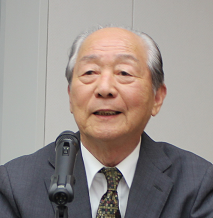
On behalf of the sponsorship, Miyagawa Kunio, representative of the Gunma Prefectural Council for Friendship and Solidarity between Japan and the DPRK and also representative of the Gunma Liaison Council for the Study of Kimilsung-Kimjongilism, gave the opening address.
Welcoming the participants throughout Japan who had been engaged in the study and dissemination of the Juche idea, Mr. Miyakawa stated that to study and disseminate the Juche idea would be the only way to solve many problems in the current chaotic and confusing international situation.
Following his address, a congratulatory message from the Korean Association of Social Scientists was read aloud.
The seminar featured guest addresses by Mr. Hongo Takaaki, member of the Gunma Prefectural Assembly, and Mr. Ri Hwa U, chairman of the Gunma Prefectural Headquarters of the General Association of the Korean Residents in Japan (Chongryon).
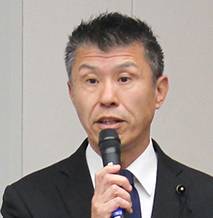
Mr. Hongo stressed that the international issues surrounding the DPRK and the educational rights of the Korean residents in Japan should be considered separately, and stressed the cultural role of Korean schools and the importance of creating an environment where Korean children can learn here equally. He also wished for the success of the seminar, appealing for efforts to deepen friendship between Japan and the DPRK in response to the issue of the removal of historic memorials for the Korean victims and sanctions against the Chongryon.
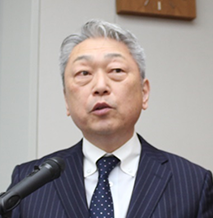
Mr. Ri Hwa U stated that this year is significant in that it marks the 80th anniversary of the founding of the Workers' Party of Korea and the 70th anniversary of the formation of the Chongryon, and hoped that this seminar, held in this memorable year, would be an opportunity for everyone to study more deeply Kimilsung-Kimongilism, the guiding ideology representing the era of Juche, and to renew the importance of the human-centered outlook on the world, or the Juche-oriented outlook on life.
In the seminar, Prof. Emeritus Kamakura Takao at Saitama University, who is director of the IIJI Board gave a lecture online entitled “The Role of the Juche Idea in Making Japan Independent” and Ms. So Sung Ae, associate professor of the Department of Political Economy at the Korean University in Japan, gave a lecture entitled “Building a Socialist Power in the DPRK”.
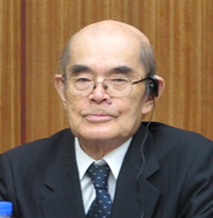
Prof. Kamakura's lecture consisted of the following topics: neoliberalism and war, the characteristics and challenges of finance capital, and the significance of the Juche idea.
First, he emphasized the role of finance capitalism, its problems, and the seriousness of the challenges humanity faces in the current world situation, including the possibility of World War III, the conflict between Russia and the U.S. over Ukraine, and the impact of neoliberalism on war.
He then explained how contemporary finance capital is affecting the economies and societies of individual countries, and pointed out that monopolies in pursuit of profit and domination through shares are the causes of increasing poverty and social inequality, which greatly affect the livelihood of workers and small and medium-sized businesses, and are the cause of wars and social unrest.
Finally, he mentioned that the Juche idea is an important guideline for overcoming the challenges facing capitalist societies, including Japan, and stressed that putting the Juche idea that emphasizes independence and solidarity of human beings on the basis of the society, would be the key to building a new society.
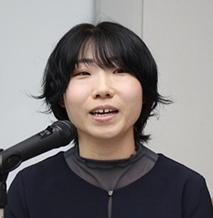
Prof. So Sung Ae systematically presented the historical background and achievements of the DPRK's efforts to build a thriving socialist power, and stressed the significance of the Juche idea as an ideological foundation.
Prof. So explained the background behind the presentation of the 15-year vision for the construction of a thriving socialist power, and then described how the construction as such has been promoted since the 15-year vision was presented, Kim Jowith an emphasis on self-reliance, and introduced the concrete progress made in the areas of agriculture, establishment, and economic infrastructure, including the project to build 50,000 households in Pyongyang and the construction of local industrial facilities.
Prof. So concluded by stating that it is the strength of ideology that is pushing forward the construction of a thriving socialist power, and mentioned that strength in the DPRK. She further explained that the revolutionary ideology of ng Un is, in essence, a people-first principle with the dedication to the people at its core, and that it is an integral system of idea, theory and method.
Dr. Ogami Ken-ichi, secretary general of the IIJI, gave the concluding remarks.
After expressing his gratitude to Mr. Miyakawa Kunio for his efforts in preparing the seminar and to the both lecturers: Prof. Kamakura Takao Kamakura and Prof. So Sung Ae, Dr. Ogami reviewed the process of the founding of the IIJI and stated as follows:
“The International Institute of the Juche Idea was officially established in 1978. Prof. Yasui Kaoru, the first director general of the Institute, accepted the role as such despite his serious illness, and led the preparations for the founding of the Institute until shortly before his death, while fighting against cancer. “
His determination and resolution are condensed in the tanka poem, “About this dream I have held on all my life, I would like to entrust it to my younger ones and watch it over to the end.
Dr. Ogami also introduced his audience by President Kim Il Sung on October 17, 1980, and said as follows:
“President Kim Il Sung explained the importance of the Juche idea as a guideline for nation building. He also pointed out that developing countries have two problems: ‘the lack of their own cadres’ and ‘the lack of uniqueness due to the imitation of the U.S. and European countries’. In particular, he taught that the first priority in post-independence nation is to develop agriculture and create an environment in which its people can eat. He also suggested in those days that the U.S. domination of the world was reaching its limits. The contemporary world situation, especially the U.S.-first policy and the decline of its military influence, is consistent with President Kim Il Sung's analysis in those days.”
Dr. Ogami emphasized that the world is accelerating to enter an “era of independence”. Referring to President Kim Il Sung's words that it is better to study and disseminate the Juche idea with faith in the intellectuals and youth and to have the Korean experience made public, Dr. Ogami expressed his determination to continue to study and disseminate the Juche idea to the world and to wage struggles to make his own country and the rest of the world independent, following the teachings of President Kim Il Sung and the legacy of Prof. Yasui Kaoru.
Cultural Performances
After the seminar, cultural performances were given.
Two pieces of Japanese dance by Fujima Kimiyoshi and her disciples as well as Yagibushi (a local melody) by the Jyoushyu Preservation Society for Yagibushi were performed.
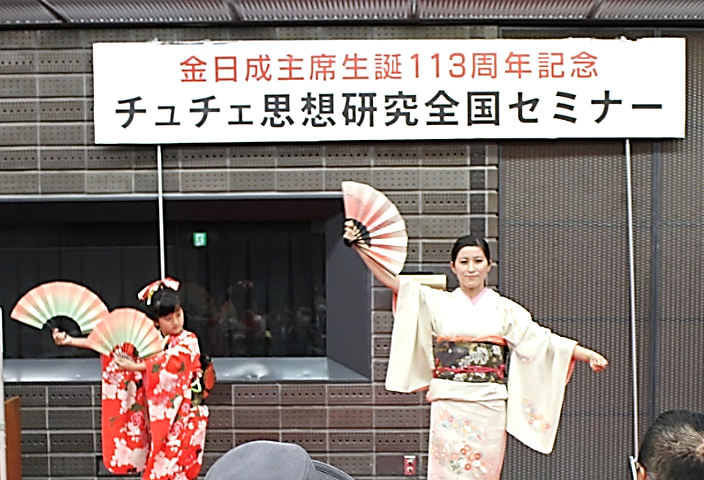
About a Japanese dance by Fujima Kimiyoshi and her disciples, they performed an original one based on the theme of a tanka poem written by Prof. Yasui Kaoru, the first director general of the IIJI, whose lyrics were introduced in the closing remarks by Dr. Ogami Ken-ichi, secretary general of the IIJI.
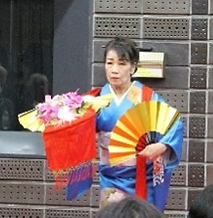
In another creative solo dance “Mai (dancing)”, Fujima Kimiyoshi expressed her hope for the next generation through her dancing.

Osaka
Seminar on Juche Idea

To commemorate the 113th birth anniversary of President Kim Il Sung, a seminar on the Juche idea was held in Osaka on April 12, 2025, hosted by the Kansai Liaison Council for the Study of Kimilsung-Kimjongilism, which was supported by the International Institute of the Juche Idea (IIJI).
The seminar was attended by Dr. Ogami Ken-ichi, secretary general of the International Institute of the Juche Idea, as well as prominent figures from the academic, social, and political worlds, doctors, journalists, workers, and students.
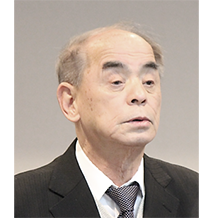
Pu Yong Uk, chairman of the Osaka Headquarters of the General Association of the Korean Residents in Japan, participated as a guest of honor and made the following remarks:
“In the midst of the global geopolitical changes, where the U.S. hegemony is collapsing and the world is moving toward independence and multipolarity, the West including Japan are in a state of confusion. In order to realize lasting peace in Asia, it will be essential to conclude a DPRK-US peace agreement and to normalize diplomatic relations between Japan and the DPRK based on Japan’s reckoning with the past. It is truly an urgent task to improve relations between the countries in the world in line with the advent of a new era.
“In Japan, the government’s discrimination against Korean schools and the preoccupation with the abduction issue are obstacles to dialogue between Japan and the DPRK, and the Japanese government is required to make active efforts to eliminate colonialism and protect the rights of Korean residents in Japan.”
Chairman Pu called for support and solidarity for the movement to improve Japan-DPRK relations and realize a society free of discrimination.
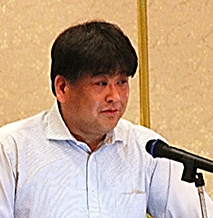
At the seminar, Prof. Fukuhara Yuji at Shimane Prefectural University gave a lecture entitled “The Current Situation on the Korean Peninsula and Japan-DPRK Relations.”
Prof. Fukuhara analyzed the current situation of the DPRK, the ROK, and Japan-DPRK relations from the perspective of his research on the Northeast Asian region, based on materials and data collected through his actual visits to the DPRK, the ROK, and other Northeast Asian countries.
Regarding the current situation of the DPRK, Prof. Fukuhara described the DPRK’s leadership system since Kim Jong Un started his leadership as the supreme leader, and explained about the “people-first” principle, “our nation-first” principle, the strengthening of national defense capabilities, and the characteristics of Kim Jong Un's revolutionary activities.
Regarding the strengthening of the DPRK’s national defense capabilities, Prof. Fukuhara explained, using materials, that the DPRK is launching missiles in response to joint military exercises by Japan, the U.S., and the ROK, that is to say that they were the DPRK’s reaction to the provocation of those countries.
Regarding the “people-first” principle, Prof. Fukuhara noted that in his speech in April 2012, Kim Jong Un said that Pyongyang would be built as a global model city and that he would extend this to the countryside, and that the “20 x 10 policy for regional development” was now being implemented. He stated that that way in the DPRK the vision to improve the people's life had been made clear.
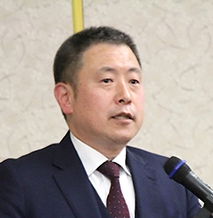
Mun Bong Su, principal of Kyoto Korean Intermediate and High School, then gave a presentation entitled "Receiving Audience by General Secretary Kim Jong Un”.
Principal Mun described the Korean residents’ children and pupils’ visit to the DPRK from the year-end of the last year to the beginning of this year headed by himself in that it was for the first time after the Corona pandemic, at the time when their visit to their homeland had finally become feasible, and in that it was the visit of the children of the Korean residents in Japan, where they had to have a hard time due to the continuous bashing against the Korean residents. He also noted the depth of Kim Jong Un's love and concern, particularly for those educational workers and children of the Korean residents in Japan.
After mentioning what love and affection the delegation received during their stay in their homeland, Principal Mun spoke about the greatest joy and honor they had at the time when they were received by General Secretary Kim Jong Un just before they returned to Japan. He said what a joy and honor they had to have been taken a picture with General Secretary Kim Jong Un at the center and they also had a chance to let him listen to their chorus.
Principal Mon's report on their visit to the DPRK vividly conveyed what sort of leader Kim Jong Un is, who extends his love and care to his overseas compatriots.
Also at the seminar, there was an opinion raised by Kim Jin Do, former chairman of the Aichi Prefectural Headquarters of the Chongryon. He said as follows:
“I am very happy to note that every birthday of President Kim Il Sung seminars on the Juche idea have been being held in various parts of Japan.”
Referring to the movement in the 1970s that positioned Kim Il Sung's revolutionary thought as the guiding ideology of our time and earnestly engaged in the study and dissemination of the Juche idea worldwide, he also stressed the significance of the establishment of the International Institute of the Juche Idea in April 1978 as an international academic organization for the study of the Juche idea.
Cultural Performances
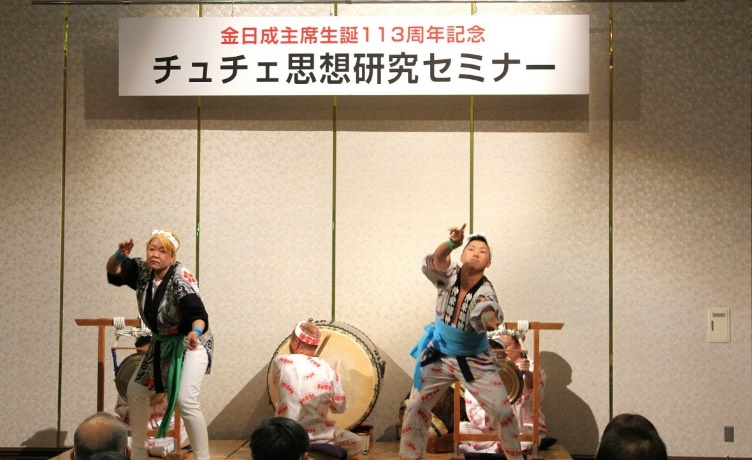
After the seminar, cultural performances were held.
The Osaka Danjiri musical performance, which is deeply rooted as a performing art of the Osaka area, was performed. The powerful sounds of dragon dances, gongs, and drums filled the venue.
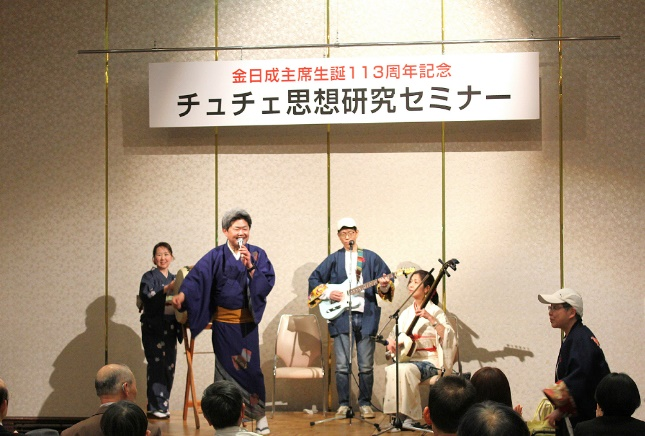
Another performance by a local performing arts troupe, who are dedicated to “bringing smiles to the world with Kawachi Ondo,” also thrilled the audience.
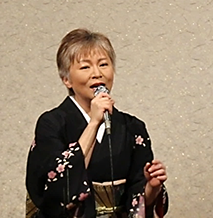
Next, Toyama Yoko, vice-chairperson of the Japan-DPRK Association for Exchanges of Music and Arts, sang “Azemichi o Aruku Toki (At a time when to walk on the footpath between rice field)” and “Eien no Hohoemi (an everlasting smile),” which are songs sung by the Korean people in memory of President Kim Il Sung.
◇ ◇ ◇
Those seminars on the Juche idea held in Gunma and Osaka provided an opportunity to reflect on the revolutionary achievements of President Kim Il Sung and to deepen the understanding of the DPRK, which today, under the leadership of General Secretary Kim Jong Un, is making great strides toward complete socialist victory.